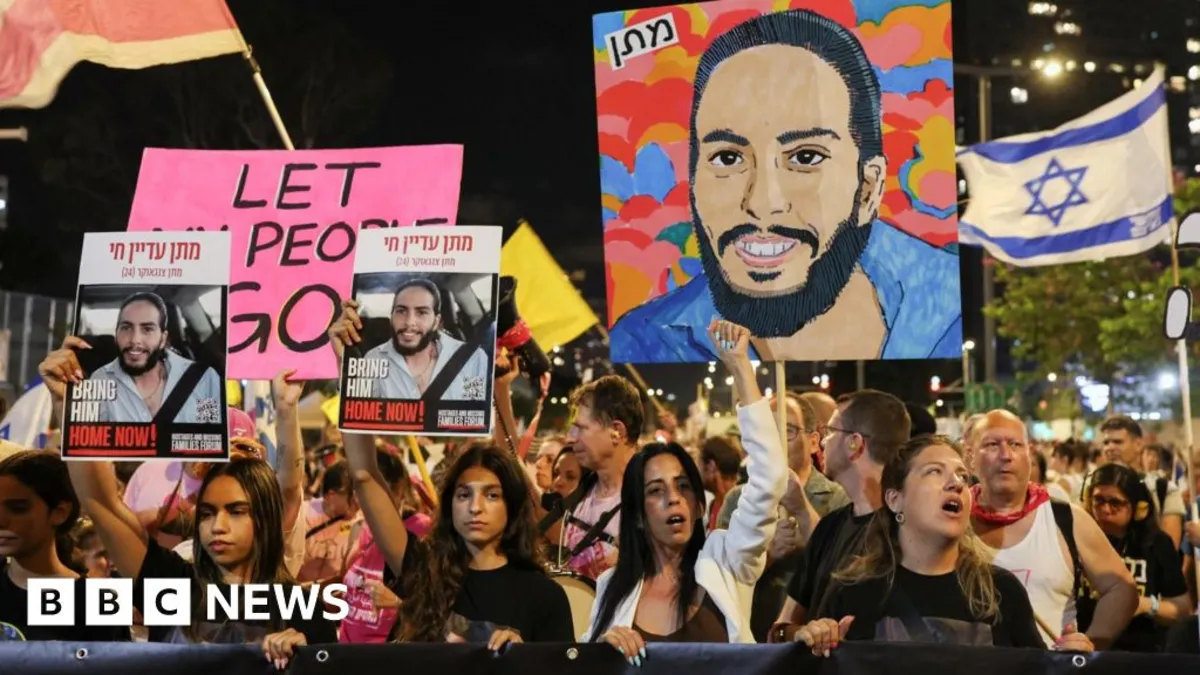
In a significant diplomatic move, Israel has announced its decision to send a delegation to Qatar on Sunday for proximity talks with Hamas. These discussions will focus on the latest proposal aimed at establishing a ceasefire in Gaza and facilitating the release of hostages. This development comes in the wake of a statement from Israeli Prime Minister Benjamin Netanyahu, who acknowledged the invitation despite expressing concerns over the unacceptable changes proposed by Hamas to the ceasefire plan.
On Friday night, Hamas communicated a positive response regarding a proposed 60-day ceasefire and expressed readiness to enter negotiations. However, a Palestinian official indicated that the militant group sought amendments, including guarantees that hostilities would not resume if permanent truce discussions faltered. This indicates the complex nature of the negotiations and the challenges mediators face in achieving a lasting resolution.
Tragically, as talks progress, the humanitarian situation in Gaza remains dire. On Saturday, the Hamas-run Civil Defence agency reported that Israeli strikes and gunfire resulted in the deaths of at least 35 Palestinians. Among the casualties were seven individuals, including a doctor and his three children, killed during bombings in the al-Mawasi area, according to a hospital in nearby Khan Younis. Furthermore, two American employees of the Gaza Humanitarian Foundation (GHF), an organization that has received backing from Israel and the US, were wounded in a grenade attack at their site in Khan Younis, an incident attributed to Hamas by both the Israeli and US governments.
In a statement released late on Saturday, the Israeli Prime Minister's Office reiterated that the amendments proposed by Hamas were unacceptable. Nevertheless, following a comprehensive assessment of the situation, Netanyahu has directed that the invitation to the proximity talks be accepted and that negotiations concerning the return of hostages, aligned with the Qatari proposal, will continue. The Israeli negotiating team is scheduled to depart for Qatar tomorrow.
As these indirect talks unfold in Doha, mediators are facing significant challenges in reconciling the differing demands of both parties. Observing the developments closely is President Trump, who has recently expressed optimism regarding the prospects for an agreement. Prior to being informed of Hamas's response, Trump remarked on Friday that it was encouraging to see a positive outlook from the group and hinted at the possibility of a deal in the coming week.
The families of Israeli hostages and Palestinian residents in Gaza are anxiously awaiting the outcome of these negotiations. On Saturday night, families of the hostages and thousands of their supporters gathered in Tel Aviv to advocate for a comprehensive deal that would facilitate the return of all hostages. Among the speakers was Yechiel Yehoud, whose daughter, Arbel, was released during the last ceasefire—a deal brokered by Trump before he took office.
On Tuesday, President Trump announced that Israel had accepted conditions for a 60-day ceasefire during which both parties would work toward ending the ongoing conflict. The proposal is believed to include a staggered release of 10 living Israeli hostages held by Hamas and the return of 18 deceased hostages in exchange for Palestinian prisoners currently detained in Israeli jails. It is reported that 50 hostages remain in Gaza, with at least 20 confirmed to be alive.
Additionally, the proposed plan outlines that sufficient humanitarian aid will be allowed into Gaza immediately, with oversight from the United Nations and the International Committee of the Red Cross. A senior Palestinian official familiar with the negotiations indicated that Hamas is demanding that aid distribution be exclusively managed by the UN and its partners, while calling for the cessation of GHF's operations. Furthermore, Hamas is seeking a commitment regarding Israeli troop withdrawals, preferring that forces return to positions held prior to the last ceasefire's breakdown in March.
Despite ongoing negotiations, Prime Minister Netanyahu has made it clear that he will not end military operations until all hostages are released and Hamas's military capabilities are dismantled. Members of his far-right cabinet have echoed this sentiment, with National Security Minister Itamar Ben-Gvir asserting that the only path to recovering hostages involves a complete conquest of Gaza and an end to humanitarian aid.
Since the onset of the Israeli military campaign in response to the October 7, 2023 attack, which resulted in approximately 1,200 deaths and 251 hostages taken, the humanitarian crisis in Gaza has escalated. According to the Hamas-run health ministry, over 57,338 individuals have been killed in Gaza since the conflict began, underscoring the urgent need for a resolution.